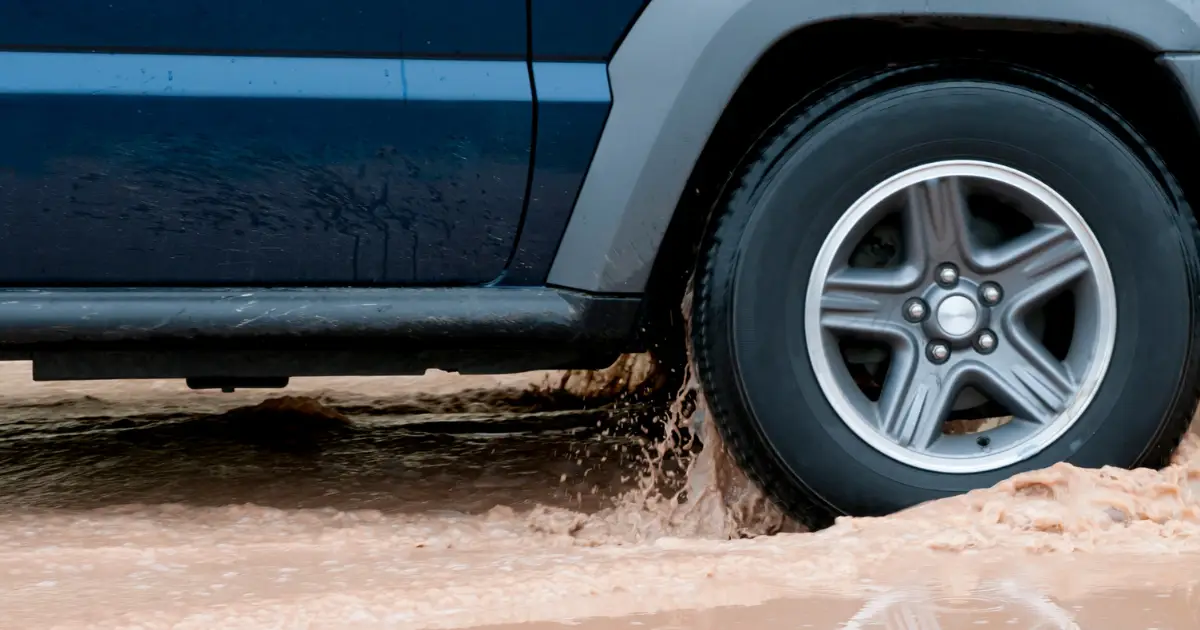Flash floods can occur within minutes or hours of excessive rainfall, making them one of the most dangerous and unpredictable natural disasters. As a driver, knowing how to navigate a flash flood safely is crucial. NavSav Insurance is here to guide you through these treacherous conditions with essential safety tips.
Recognize the Risks
Understanding the power of water is the first step to safety. Just 12 inches of rushing water can carry away a small car, while 2 feet of water can sweep away most vehicles. It’s not just the depth, but the force of the water that poses a threat.
Stay Informed
Before heading out, check the weather forecast for any flash flood warnings in your area. Apps and radio stations can provide real-time updates. If there’s a risk of flooding, consider postponing your trip.
Avoid Flooded Areas
Never attempt to drive through flooded roads. Floodwaters can be deeper than they appear and can hide hazards such as sharp objects, downed power lines, or washed-out road surfaces.
Turn Around, Don’t Drown®
This slogan by the National Weather Service is a life-saving reminder: if you encounter a flooded road, turn around. It’s not worth the risk to yourself, your passengers, or your vehicle.
Practice Safe Driving Habits
If you’re caught in conditions where water starts to rise:
- Slow down and maintain a safe distance from other vehicles.
- Use your headlights to increase visibility.
- Be especially cautious at night when it’s harder to recognize flood dangers.
Escape a Sinking Vehicle
If your vehicle becomes submerged:
- Don’t panic. Stay calm and focused.
- Unbuckle your seatbelt.
- Open or break a window to escape before the car is fully underwater.
- Swim to the surface as quickly as possible.
Have an Emergency Kit
Always keep an emergency kit in your car with items like a first-aid kit, flashlight, blankets, and a portable charger for your phone.
Insurance Protection
Ensure your vehicle insurance includes coverage for flood damage. NavSav Insurance offers comprehensive plans that protect you against natural disasters, including flash floods.
Conclusion
Your safety is paramount. By following these tips and staying prepared, you can significantly reduce the risks associated with driving through flash floods. Remember, no destination is worth endangering your life. For more information on how NavSav Insurance can help protect you and your vehicle, visit our website or contact one of our agents today.
Disclaimer: The information provided in this blog post is for general informational purposes only. NavSav Insurance has compiled this content with due care to inform and educate our readers about safety measures during flash floods. It is not intended to serve as legal, financial, or professional advice. The circumstances surrounding flash floods can vary widely, and the suggestions made herein may not be suitable for every situation. NavSav Insurance does not guarantee the completeness, reliability, or accuracy of this information. Any action you take upon the information presented in this blog post is strictly at your own risk, and NavSav Insurance will not be liable for any losses and/or damages in connection with the use of our website or the information contained herein. For specific advice tailored to your situation, please consult with a professional or contact our agents directly.
